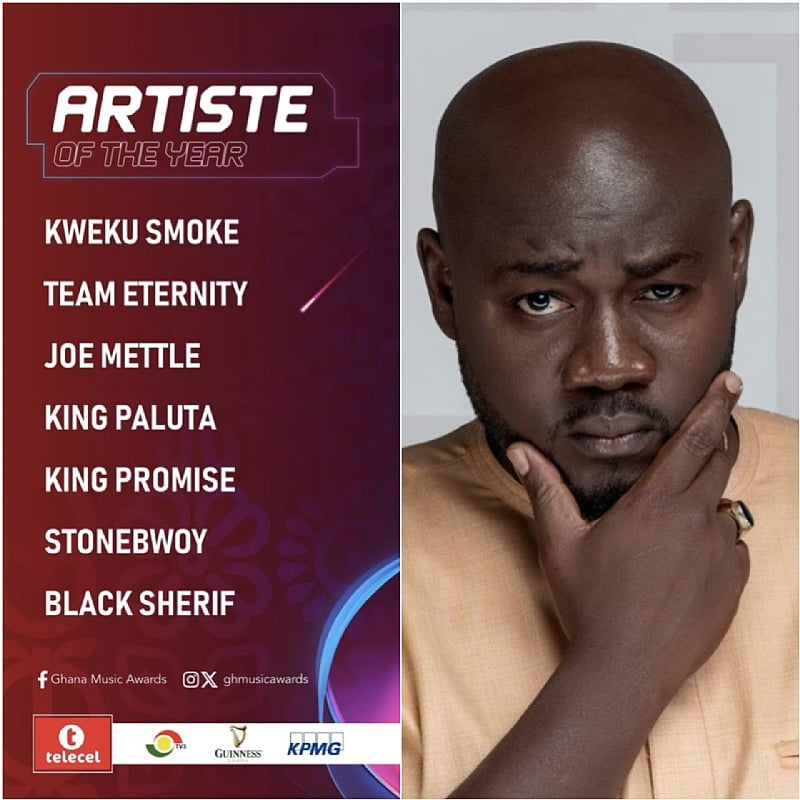The Ghanaian music scene is abuzz with conversations surrounding the Ghana Music Awards, an annual celebration of the country’s musical talent. DJ Slim, a prominent figure in the Ghanaian media landscape, has sparked a debate with his outspoken views on artist engagement with the awards process. He contends that a disconnect exists between some artists’ aspirations for the prestigious Artiste of the Year award and their actual participation in promoting the awards themselves. DJ Slim argues that artists who demonstrate a genuine commitment to the awards, through active promotion and engagement, deserve greater consideration for the top honor. He believes that the organizers, Charterhouse, should prioritize artists who actively support the awards scheme, thus demonstrating a mutual respect for the platform and its significance within the industry.
DJ Slim’s critique highlights a perceived lack of enthusiasm among some nominated artists, who he suggests seem to expect recognition without actively contributing to the awards’ visibility. This passive approach, in his view, contrasts sharply with the dedication displayed by artists like King Promise and Stonebwoy, whom he identifies as the only deserving contenders for the Artiste of the Year title. He commends these two artists for their proactive efforts in promoting their nominations and engaging with the awards process. King Promise’s collaboration with publicist Tilly Akua Nipa and Stonebwoy’s partnership with Vida Adutwumwaa are cited as examples of their commitment to maximizing their visibility and showcasing their work during the awards season. DJ Slim suggests that this active participation demonstrates a respect for the awards and a genuine desire to connect with fans and the wider music community.
The Ghana Music Awards are intended to be a platform for recognizing and celebrating excellence in music. They provide an opportunity for artists to showcase their achievements, connect with their fanbase, and contribute to the overall growth of the Ghanaian music industry. However, DJ Slim’s commentary suggests that not all artists fully embrace this opportunity. He implies that some nominees view the awards primarily as a means of personal recognition, neglecting the collaborative and promotional aspects that contribute to the event’s success. This, he argues, undermines the spirit of the awards and diminishes the value of the recognition they bestow.
According to DJ Slim, King Promise and Stonebwoy stand out because they exemplify the ideal approach to awards season engagement. Their proactive strategies, including enlisting publicists and actively promoting their nominations, demonstrate a commitment to maximizing their exposure and connecting with their audience. This proactive approach, DJ Slim argues, is a sign of respect for the awards process and a recognition of the platform’s importance in promoting Ghanaian music. He contrasts this with the perceived apathy of other nominees, who he believes are missing out on the opportunity to fully engage with the event and leverage its potential for career advancement.
DJ Slim’s perspective raises important questions about the relationship between artists and awards ceremonies. Should artists be expected to actively promote their nominations and the event itself? Does a lack of visible engagement disqualify an artist from deserving recognition? These questions spark a broader discussion about the role of awards in the music industry and the responsibilities of artists within this ecosystem. DJ Slim’s comments suggest that, beyond mere talent and musical achievement, active participation and promotion are essential components of a successful awards season strategy.
Ultimately, the debate sparked by DJ Slim’s comments underscores the significance of the Ghana Music Awards as a platform for celebrating and promoting Ghanaian music. His critique challenges artists to reconsider their approach to awards season, emphasizing the importance of active engagement and promotion. By highlighting the efforts of King Promise and Stonebwoy, he sets an example for other artists to follow, encouraging a more proactive and collaborative approach to maximizing the benefits of participating in the Ghana Music Awards. His perspective emphasizes the importance of viewing the awards not just as a competition for individual accolades, but as a collective effort to elevate the Ghanaian music scene on a national and international stage.


